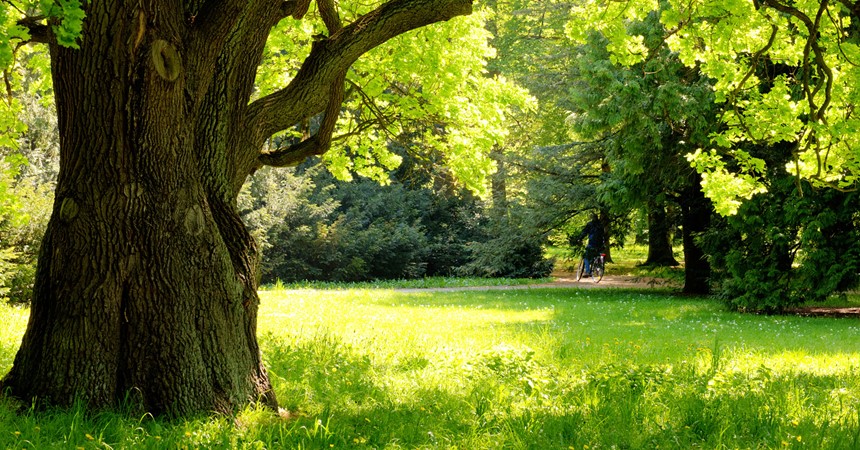Generally, taking on more projects, acquiring more skills and doing more activities are viewed as signs of positive development. The wisdom from the saying, ‘A tree grows in two directions’ reminds us that if, metaphorically, we grow more branches, produce more fruit and provide shelter for others, we also need to provide nourishment for life at its roots.
There is a variety of descriptions, such as ‘soul work’ and ‘nurturing our spirit’, and many practices in religious traditions, to assist us in deepening our roots. One discipline that has been a constant in my life is the practice of keeping a journal. There are many forms of journal writing and whether you are a writer or not, you can journal. No special skills are needed, just the desire to express yourself and take time to reflect on where you are, what’s important to you, and where your growing edges are.
Because it’s just for me, spelling and grammar don’t matter. Once I realised that I could not make mistakes in my journal, I felt much freer. I have always thought of my journal as a longtime companion who was always glad to see me. Rather than my journal being something I have to do or feel guilty about, it is a friend with whom I just pick up the conversation where I left off. Anne Frank describes this relationship in her diary, “I hope that I shall be able to confide in you completely, as I have never been able to do in anyone before, and I hope that you will be a great support and comfort to me.”
Let me share a few ideas from my experience to encourage you to take up or continue this practice in your life.
Just start! You can get a notebook or just write in whatever is available. Julia Cameron in The Right to Write inspired me not to be fussed about where and when and how, but just to write. While it’s lovely to have a quiet house or be in some idyllic natural setting, for some of us at certain times of our lives, that is not likely to happen.
Years ago, when my children were playing in the backyard with their friends, I sat down by the back window with my journal so I could ‘supervise’ without hovering. I just started writing, amazing myself that I could write in that situation. As I realised, that was my life at the time and my journal didn’t care if I was alone or surrounded by activity. Some people find it helpful to schedule journal time into their daily routine. Find what works for you.
I became so drawn to the rewards of journalling that I set out to learn more and eventually to lead workshops. In these workshops I often begin with a simple writing activity like, ‘I am……..’ and people write whatever comes, such as, “I am mother, friend, a worker. I am middle-aged, a migrant, a person who loves nature…” It’s an easy ‘loosening’ exercise. Recording blessings or things in my life for which I am grateful is another lovely exercise.
The journal provides a means to reflect on life’s experiences. Whether a childhood memory or an encounter yesterday, all our experiences are potential topics for our journal.
I find that it often helps me to begin with something I feel moved by or have strong feelings about. Whether it’s anger, grief, or excitement, I describe my feelings and what happened and let it open up. As I write, the experience or narrative takes on a life of its own and I often make discoveries.
People commenting about journal writing may say, “I didn’t realise how strongly I felt” or “Writing about this experience helped me realise its connection to a strong value I hold.”
Often people write to ‘get it off their chests’ and this can be very helpful to name and honour what is happening in our lives. I find my journal understands me, no matter what I bring to it. It is a place of tears and grief as well as joys and celebrations; a place I can pour out my heart and not be judged.
Writing honours our experience and in honouring our own life, we often find we are more open to others and to God. People sometimes like to use their journal for prayer or writing about prayer experiences.
A journal can hold whatever we want it to hold. It’s a spacious and open place for whatever we bring. One of the images of God I experience in prayer is wide open arms and a welcoming presence. I often write in that quiet time, enriched with the presence of God, blessing my life and the people and world I inhabit.
I encourage you to experiment with prayer and blessings in your journal – or simply to write with the awareness of God’s loving presence, encouraging you to share your thoughts and concerns about the people and situations in your life. As we deepen our relationship with God and with life, we also come to recognise circumstances where we might be called to act differently or aspects of our lives we want to change or develop. Many people have given accounts of how journalling changed their attitudes or their relationships or set them on a new course. Whatever your hopes for writing, may you find freedom and enjoyment in keeping a journal.
To know more or gain further ideas, there are numerous sites online which discuss journalling and several books written on the topic.
Kate Scholl leads Intensive Journal®workshops for the Eremos Institute in various locations. For more information see eremos.org or E council@eremos.org.au. The next Intensive Journal Workshop will be on 18-19 April in Parramatta, see website for details which will be posted soon.























































































